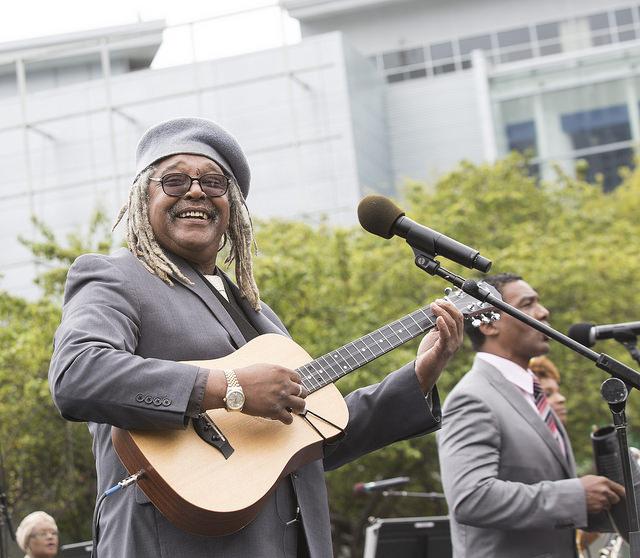With the hope of exposing his students to his country’s culture, Grammy award winning Cuban musician Juan de Marcos González is teaching fall semester residency courses at University of Wisconsin.
Born and raised in Cuba, González’s time there shaped his understanding of music. Coming from a family of musicians, his father was a lead singer of great Cuban bands in the ’30s and ’40s. But his father wanted González to attend university and become a true professional; he didn’t see music as a proper career.
González said he was initially a rock and roll musician, because he was influenced by music on the radio. But as he grew older, he started performing traditional Cuban music, and has focused much of his career on this style.
“I performed [rock and roll] for a long time, but in the end, I decided that the only way to make it was to turn my eyes to the music of my country,” González said.

This desire to play the sounds that fill Cuba’s robust music culture led to the creations of the Buena Vista Social, Sierra Maestra and the Afro-Cuban All Stars. González said he’s glad to keep the prevalent sound of Africa alive in the All Stars music. In 1997, he decided to make the All Stars a project instead of a band, which meant the group’s lineup would switch throughout the years.
Through working with different musicians over the course of his career, González has made lasting connections. With the help of a close friend and former writing mate for the Sierra Maestra, William Ney from UW’s Office of Multicultural Arts Initiatives called González last year with the opportunity to come to Madison.
It’s not his first time teaching a course, having lectured at universities such as Dartmouth, Cambridge and Oxford. But González has not been in front of a classroom for 15 years.
This time around, he prepares the coursework and is able to work closely with his students, which he said is “a good time.”
“I am an active musician,” González said. “I work, I perform and I write music. I prepare albums and produce music for myself and other people too. But I have a bunch of great students so everything is good. I like to be in touch with them.”
And González said he’s learning from his students as much as they are learning from him. When it comes to working with students instead of professionals, González said there’s no difference in the quality of sound that’s produced. While professionals play faster and have the training, González said students have to work and create a plan of what they want to achieve in their minds.

González hopes his students leave his course appreciating the art and evolution of Cuban music, but he wants them to experience real interaction with Cuban culture.
Because of the strained relationship between the U.S. and Cuba, this generation has a distanced understanding of the country, González said. But the power of the music, he said, will create a link between the countries by helping others see the connections within American and Afro-Cuban music.
González said his country’s music could be commercialized as relations between the U.S. and Cuba improve. But in a century, he hopes people will still play Afro-Cuban and African music.
“Dance and music is very important for Cubans,” Gonzáles said. “We have to dance and we have to play music. Everybody is a musician in my country.”














